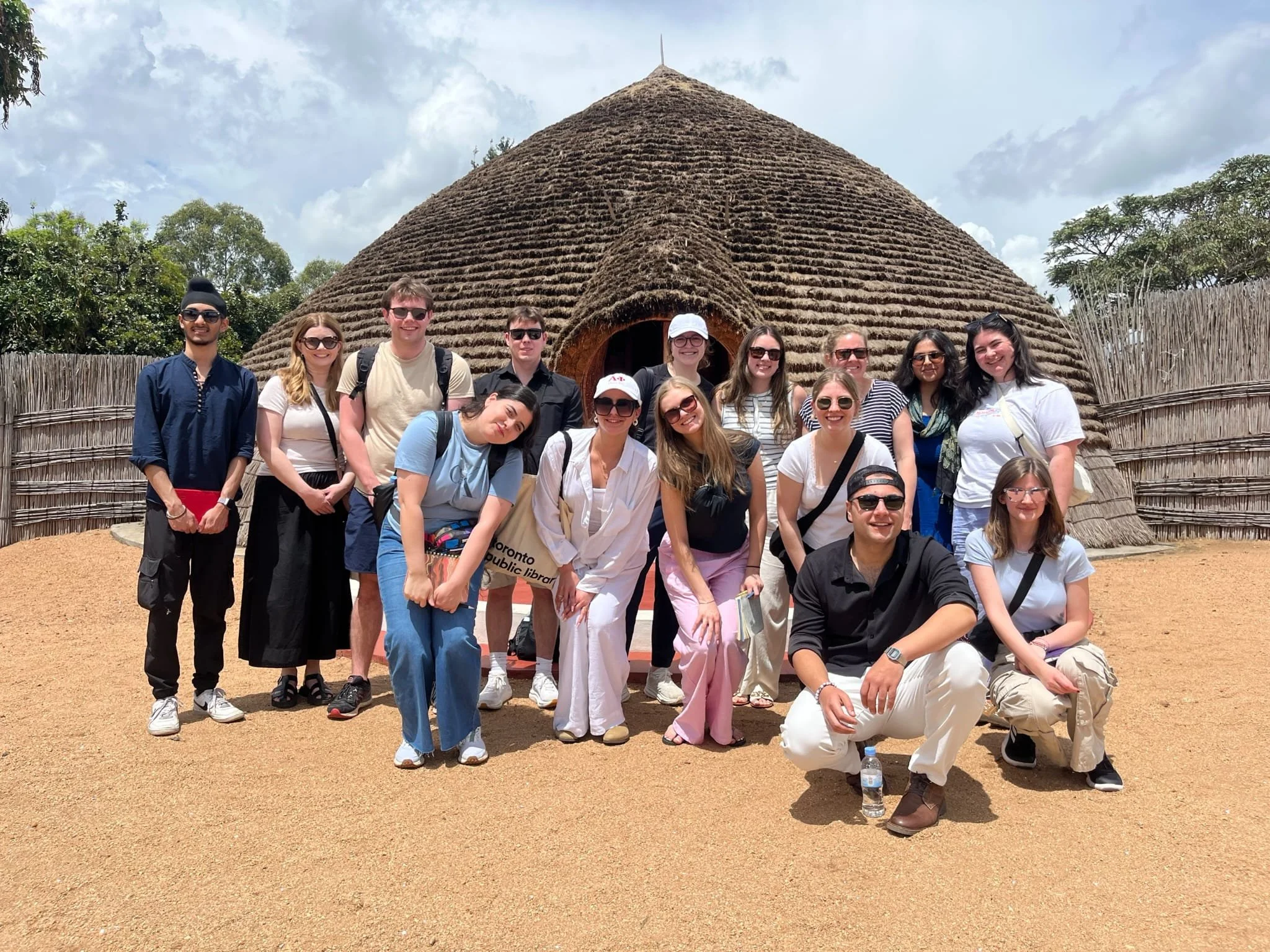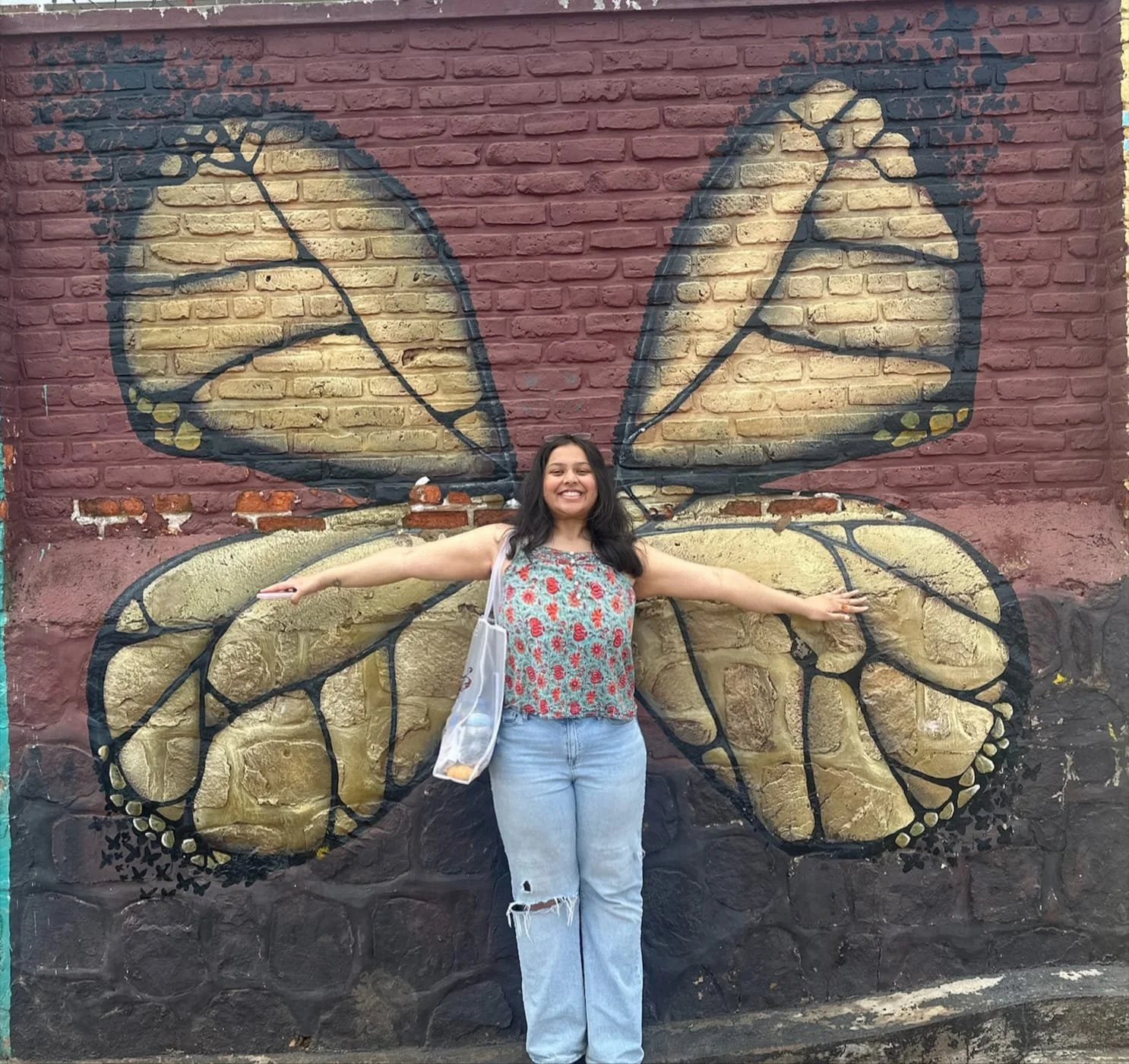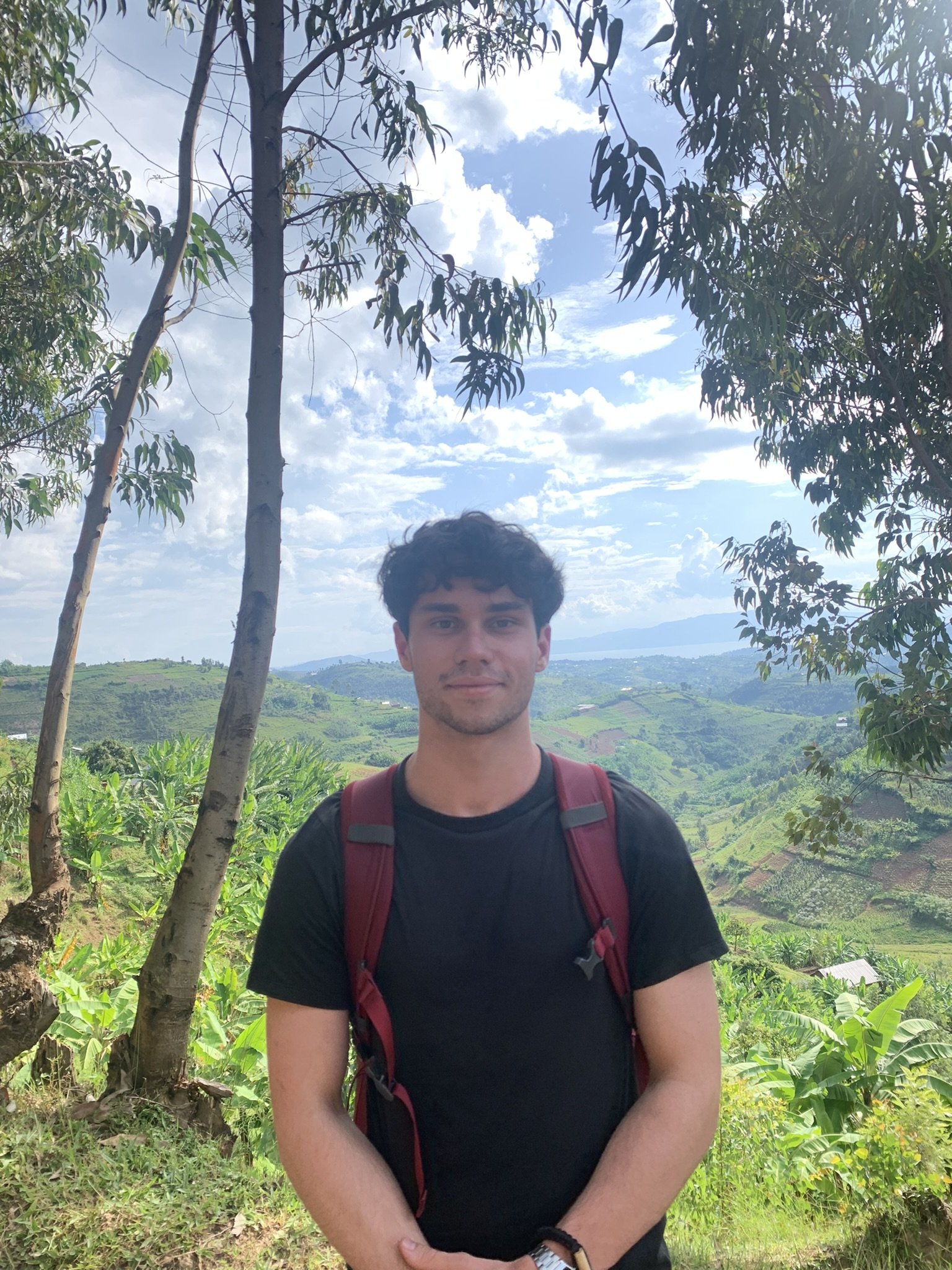Huron in Rwanda!

Learning Through Experience.
This video captures key insights from students who participated in an experiential learning trip to Rwanda focused on reconciliation and peacebuilding. Engaging with survivors, local organizations, and memorial sites, students explored how a society recovers from mass violence and builds pathways to coexistence.
Hear from past students!
-
![]()
Visiting Rwanda to study post-genocide reconciliation and peacebuilding was a deeply moving and an augmented learning experience. As someone who came from India to Canada to study politics, I’ve spent years learning about systems, laws, and institutions. But Rwanda showed me that the most important lessons often happen outside the classroom! I came in with textbook readings and theories to study how a country recovers after conflict—but what I left with was far more personal. I met people who had lived through unthinkable pain and yet chose to build something better. It wasn’t just about policy—it was about trust, memory, unity and the daily choice to move forward, together. Rwanda challenged how I think about justice, leadership, and community. It made me reflect on my own views, and how easy it is to talk about peace in theory—but how much harder, and more meaningful, it is to live it in practice. This experience reminded me why I study politics in the first place: to better understand people, resilience, and the quiet strength it takes to rebuild. Rwanda doesn’t just teach peace—it lives it. And the world has so much to learn from that.
Ovi Kulkarni
-
![]()
The experiential trip to Rwanda is a truly enriching experience for any student who cares about international law, political science, and understanding the ethos of what it means to be human. This trip challenges one’s personal bias on humanity, forgiveness, and brutality. It has deepened my compassion, enriched my analytical thinkings, and developed my emotional health. The trip is hard, and it’s meant to be hard. We collectively saw things that we will remember for the rest of our lives. Within a single day we saw the beautiful vistas over the rolling Rwandan hills, were forced to come to terms with the sorrow of a genocidal sites and recognized a shared humanity during the moment when you lock eyes with a perpetrator of genocide. This trip inspires awe and curiosity for all that go and changes how they study, what they study, and what they view to be important. Going to Rwanda taught me more than the systems of Rwandan governance, community development, but is a turning point for my personal, academic, and professional goals to be more human focused driven by forgiveness, empathy, and compassion for others.
Parker Ballard
-
I had the privilege of participating in the Rwanda experiential learning course after my first year in 2023. Now, entering my fourth and final year in Political Science, I am increasingly appreciative of how unique and formative this experience was. It is remarkable to me how, less than a year after graduating from high school, I found myself engaging with Rwandans all over the country, an unimaginable circumstance to me before I entered university. Rwanda has influenced my academic and career interests, which I continue to pursue today. Hearing the vivid and emotional stories from survivors and even perpetrators of the 1994 genocide against the Tutsi impressed upon me how politics functions outside the texts we read in university. Discussions with my classmates and local civil society and government groups deepened my understanding of the insights a political science education can offer and the career paths it can open. I would highly recommend this course to prospective students, as it will broaden your perspective on issues even beyond the genocide in a way that a typical university class cannot match.
Mathieu Pare
-
![]()
Before this trip, I didn’t have a clear sense of the academic or professional path I wanted to pursue after graduation. I was unsure of my direction and uncertain about what truly motivated me. However, the Rwanda experiential learning course gave me clarity: I realized I am deeply passionate about human rights on an international scale. My decision to pursue a legal education was solidified through face-to-face encounters with both survivors and perpetrators of the Rwandan genocide. These conversations, along with our collaboration with NGOs addressing the long-term impacts of the genocide, revealed to me the transformative power of law and advocacy in promoting justice and healing. The experience illuminated how legal systems can confront historical injustices and support reconciliation, and it instilled in me a lasting commitment to using law as a tool to drive systemic change locally and globally. I would absolutely recommend this course to other students. Before the trip, I was quite shy and didn’t know many people in the program. Being in a completely new environment pushed me outside of my comfort zone and encouraged me to build meaningful connections. I met incredible people, some of whom remain close friends to this day. It was both an academic and personal turning point that I believe would benefit any student looking to grow intellectually, socially, and professionally.
Chiara Di Paolo
-
![]()
All my previous academic case studies had been restricted to only articles and documentaries. It's difficult to truly comprehend the dynamics of another country without having been there. Rwanda offered a unique opportunity to immerse myself in another culture and gain a better understanding of what led to one of the worst atrocities in recorded history. A conversation I'll never forget was in a rural village at a grassroots organization seeking to build bridges between genocide survivors and perpetrators. We sat down with 3 perpetrators and 3 survivors and heard their stories in vivid detail. We learned how the organization developed reconciliation programming in the years since the genocide and created an atmosphere where a community could live in harmony. Academically, this course changed the way I read case studies and question narratives. It equipped me with the skills to increase the rigour of my research in other courses. The Rwanda course motivated me to participate in other travel courses to El Salvador and Ethiopia to study other mass atrocities and less-than-democratic regimes. This is not a spring break vacation or a leisurely field trip. Difficult topics are covered, but the reward is incredible. I highly recommend this course to anyone looking to take their learning out of the classroom and expand their worldview to explore a socio-political reality very different from Canada.
Michael Haas






